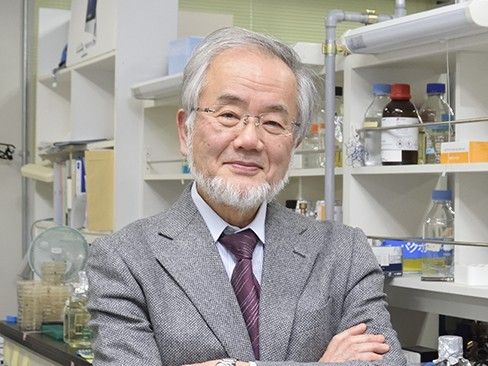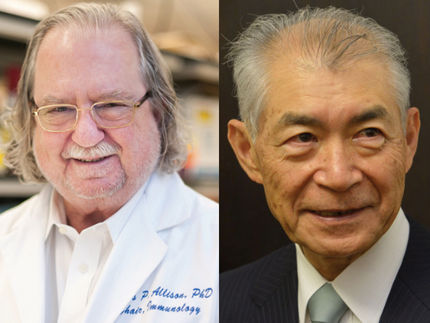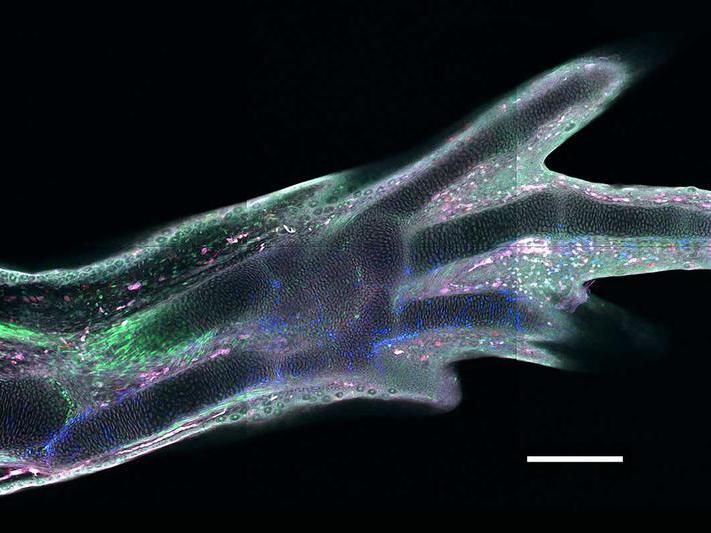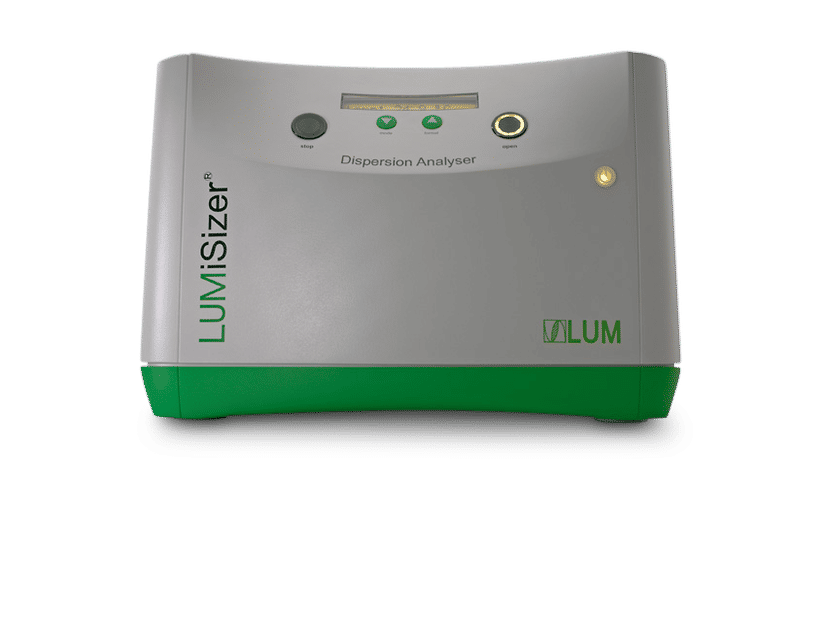Yoshinori Ohsumi receives Nobel prize for the discovery of autophagy
Nobel Prize in Physiology or Medicine 2016 awarded
The japanese cell biologist Yoshinori Ohsumi receives the Nobel prize in Physiology or Medicine for the discovery of the cell process of autophagy.

Prof. Yoshinori Ohsumi, 2015
Tokyo Institute of Technology
Yoshinori Ohsumi was born in 1945 in Fukuoka. After receiving his PhD from the Tokyo University he went to Rockefeller University, New York for three years. He went back to Tokyo University and estalished his workgroup in 1988. Since 2009 he is working at Tokyo Institute of Technology as professor.
Research summary
This year's Nobel Laureate discovered and elucidated mechanisms underlying autophagy, a fundamental process for degrading and recycling cellular components.
Autophagy denotes "self eating". This concept emerged during the 1960's, when researchers first observed that the cell could destroy its own contents by enclosing it in membranes, forming sack-like vesicles that were transported to a recycling compartment, called the lysosome, for degradation. Difficulties in studying the phenomenon meant that little was known until, in a series of brilliant experiments in the early 1990's, Yoshinori Ohsumi used baker's yeast to identify genes essential for autophagy. He then went on to elucidate the underlying mechanisms for autophagy in yeast and showed that similar sophisticated machinery is used in our cells.
Ohsumi's discoveries led to a new paradigm in our understanding of how the cell recycles its content. His discoveries opened the path to understanding the fundamental importance of autophagy in many physiological processes, such as in the adaptation to starvation or response to infection. Mutations in autophagy genes can cause disease, and the autophagic process is involved in several conditions including cancer and neurological disease.
Original publication
MLA style: "The 2016 Nobel Prize in Physiology or Medicine - Press Release". Nobelprize.org. Nobel Media AB 2014. Web. 3 Oct 2016
K Takeshige, M Baba, S Tsuboi, T Noda, Y Ohsumi; "Autophagy in yeast demonstrated with proteinase-deficient mutants and conditions for its induction"; JCB; 1992
Miki Tsukada , Yoshinori Ohsumi; "Isolation and characterization of autophagy-defective mutants of Saccharomyces cerevisiae"; FEBS Letters; 1993
Noboru Mizushima, Takeshi Noda, Tamotsu Yoshimori, Yae Tanaka, Tomoko Ishii, Michael D. George, Daniel J. Klionsky, Mariko Ohsumi & Yoshinori Ohsumi; "A protein conjugation system essential for autophagy"; Nature; 1998
Yoshinobu Ichimura, Takayoshi Kirisako, Toshifumi Takao, Yoshinori Satomi, Yasutsugu Shimonishi, Naotada Ishihara, Noboru Mizushima, Isei Tanida, Eiki Kominami, Mariko Ohsumi, Takeshi Noda & Yoshinori Ohsumi; "A ubiquitin-like system mediates protein lipidation"; Nature; 2000
Most read news
Original publication
MLA style: "The 2016 Nobel Prize in Physiology or Medicine - Press Release". Nobelprize.org. Nobel Media AB 2014. Web. 3 Oct 2016
K Takeshige, M Baba, S Tsuboi, T Noda, Y Ohsumi; "Autophagy in yeast demonstrated with proteinase-deficient mutants and conditions for its induction"; JCB; 1992
Miki Tsukada , Yoshinori Ohsumi; "Isolation and characterization of autophagy-defective mutants of Saccharomyces cerevisiae"; FEBS Letters; 1993
Noboru Mizushima, Takeshi Noda, Tamotsu Yoshimori, Yae Tanaka, Tomoko Ishii, Michael D. George, Daniel J. Klionsky, Mariko Ohsumi & Yoshinori Ohsumi; "A protein conjugation system essential for autophagy"; Nature; 1998
Yoshinobu Ichimura, Takayoshi Kirisako, Toshifumi Takao, Yoshinori Satomi, Yasutsugu Shimonishi, Naotada Ishihara, Noboru Mizushima, Isei Tanida, Eiki Kominami, Mariko Ohsumi, Takeshi Noda & Yoshinori Ohsumi; "A ubiquitin-like system mediates protein lipidation"; Nature; 2000
Topics
Organizations
Other news from the department science

Get the analytics and lab tech industry in your inbox
By submitting this form you agree that LUMITOS AG will send you the newsletter(s) selected above by email. Your data will not be passed on to third parties. Your data will be stored and processed in accordance with our data protection regulations. LUMITOS may contact you by email for the purpose of advertising or market and opinion surveys. You can revoke your consent at any time without giving reasons to LUMITOS AG, Ernst-Augustin-Str. 2, 12489 Berlin, Germany or by e-mail at revoke@lumitos.com with effect for the future. In addition, each email contains a link to unsubscribe from the corresponding newsletter.


























































